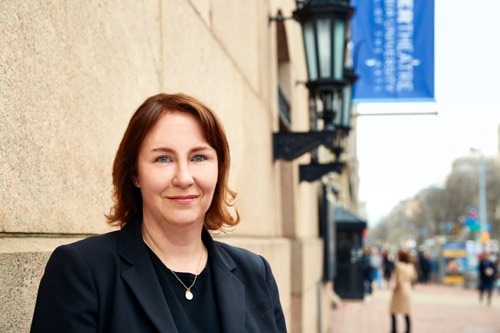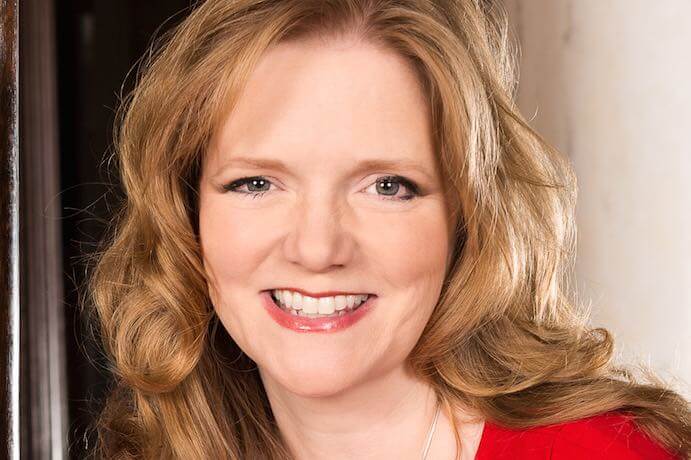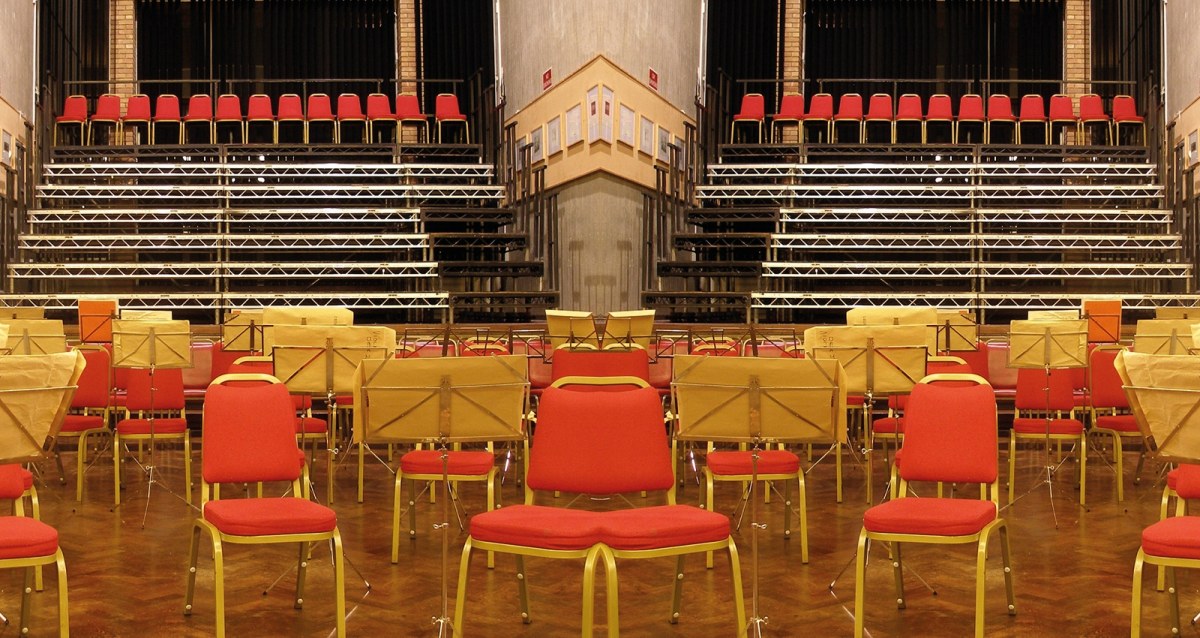On 8 p.m. Thursday, March 12, pianist Simone Dinnerstein and musicians—mezzo-soprano Kady Evanshyn, violinist Rebecca Fischer, oboist Alecia Lawyer, and the ensemble Baroklyn—were to take the stage at Miller Theatre and play music by J.S. Bach: “Jesu, Joy of Man’s Desiring” for piano solo; the Concerto for Violin and Oboe in C minor, BWV 1060; the Chorale Prelude “Ich ruf zu dir, Herr Jesu Christ, BWV 639” (in the arrangement by Busoni); and the glorious Cantata “Ich habe genug,” BWV 82.But that was before the COVID–19 coronavirus began making its way across the globe. Columbia University, the home of Miller Theatre, was one of the first institutions in New York City to shut down operations and send people home. Executive director Melissa Smey, her staff, and the musicians were faced with cancelling the concert, but instead went ahead and played, without an audience, streaming the concert over the internet. To the already unique circumstances, add the fact that Miller Theatre had never streamed a concert before—ever. Smey and Lawyer describe how it happened, and the experience of playing in the quarantined hall.
Melissa Smey: Sunday night before the concert, I got updated guidance from the University on limiting in person events of 25 people or more. So at that point the idea was what could we do: cancel, postpone? I talked to Simone about it. Could we live stream? I actually didn’t know if we could get the technology to do it.Alecia Lawyer: We had our first rehearsal Monday. We were discussing it the whole time. I was suggesting it because ROCO [Lawyer is artistic director and founder of the Houston-based chamber orchestra] has been doing it for so long and it was just a normal response. But we started talking about it earlier and Miller got on it right away. Everyone there just wanted to keep it going.Smey: [Simone] was 100 percent on board and felt confident that the musicians would feel the same way. And we knew that postponing wouldn’t be an option, because Kady [Evanshyn] had come from Germany. We felt, Let’s try to figure it out.

Jason Fitzergerald and Kelson productions live stream the School of the Arts commencement at Columbia University every year. We called him, and he happened to have had another event that Thursday that cancelled, so he was available, and he already knew our space. Lawyer: It was the first time I’ve done it [without an audience]—except for a recording studio or a television show, we always have live audience. Because I’ve done live radio as a DJ and TV, I was expecting it to be electronically intimate. The connection was going to be much more in-depth with the musicians themselves. When you’re on stage and projecting to an audience they are relating in various ways to what you are doing on stage. When I perform I’m always trying to invite them to respond in any way they can.
When you’re doing it just for your musicians, you have a different approach, delving into the intricacies so much deeper…you’re not trying to project something when you’re so intimate. I actually felt very intimate there.
Smey: I felt it was the perfect match for the music. I had been working with Simone on this series, and she’s such a beautiful and gifted curator of people, or experiences, of the music that was in the concert. The idea that we would have to cancel this concert—I didn’t want that to be the outcome. So I felt this was really amazing, that the technology that we had was a brilliant match for the level of musicianship that was on the stage. The two things went together beautifully.Lawyer: Facing each other, surrounding the piano, almost becoming a true family—it was amazing. It did not feel as clinical as I was expecting it to be. It felt very much like, OK, we are providing something for our selves and for others that still feels like a connection, because now we’ve removed layers [from] those connections.Smey: We knew that there would be no audience in the seats, so Simone was able to have the exact set up that she wanted, more upstage than they would usually be, in a beautiful circle facing each other, kind of the most beautiful chamber music set up. That wouldn’t have been the ideal setting for a live acoustical experience with an audience in the house.Lawyer: Our house lights are up when we do a ROCO concert, so you can see who’s out there. But even when they’re not, you sometimes imagine the people who are going to judge you the most are out there, and all those specters can arise in your own mind.Smey: The intimacy of chamber music, what the musicians needed to convey to each other, it was really stunning. And the cameras were able to capture that beautifully.
It was pretty surreal. The thing was once it got going, [sitting in the house] I started to get emails and texts from friends and family who were watching. The crew had real-time stats as to how many people were tuning in, and I was like, “we are acing this.” It was just the right thing to do, [and] people were tuning in.Lawyer: It’s really, Come into my world, step into this world that’s open to you now; how can we share it? My biggest complaint about classical music is it feels like you’re witnessing something from the audience, instead of a shared language. Now I know we’ll be witnessing it from further afar, you might be in your jammies, and that’s not a bad thing.Smey: Something we’re exploring at Miller this season is the idea of community and collaboration and coming together. With everything that is happening right now, it had added resonance. We had been talking on campus all week: we had been asked to make these contingency plans, and you have to think about essential versus non-essential personnel. That made me realize that this live stream, the arts are absolutely essential. Some people are going to be asked to self-isolate. But this kind of coming together, even virtually, for an arts experience, is essential.Lawyer: If you are able to be vulnerable on stage—which is the people I enjoy playing with the most—there is this loop that happens, and it is an actual communication. It is not a presentation, or a witnessing; that to me is the most important part of classical music and it’s difficult to achieve. It was incredibly powerful. You probably saw it, after we finished the first concerto, we all were almost giggly: Look, we did this!

So many things were getting cancelled right and left, people were getting calls backstage before we started of cancellations of concerts. So people were in the middle of doing it. And instead of dismay, we all felt this incredible power. How perfect to play Bach, “Ich habe genug.” Truly it was enough.
It was weird at first, mostly because: awkward silence, right? I would just say, no matter what, the audience completes the musicians. So whether we are in Star Trek hologram world, you still need a receptor for the language you are speaking. It’s a completion of a circle of language.
I believe very strongly that music is the groanings of the spirit. To me God is always listening. There’s always going to be an audience for the receiving. ¶

